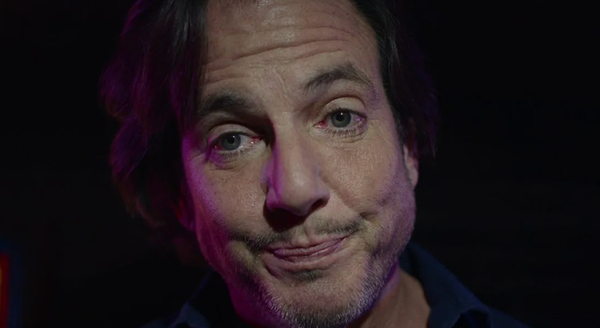'Paw' Part 2: Preparing for nightfall

I previously published the opening excerpt from Paw, an Old West horror novel that I've been writing. You can find the first installment here. Enjoy.
Round the other side of the farmhouse, a modest and rough-hewn barn stood. Some fifteen years gone, Clifford Parks had raised it in tandem with Eugene and Elmer Youngblood, his wife’s older brothers. They’d framed it out using white fir: virgin timber, hauled right down from Buckskin Mountain by the homesteaders, apportioned out thanks to sweat equity and generosity and family connections.
They’d laughed and sang and grimaced, their backs and necks and shoulders reddening and then browning in the sun as they hammered and sawed and forced the corners into true. They were gone now, all of the Youngbloods, but the barn stood. In the last handful of years Clifford had taken any opportunity to reinforce the buildings on the ranch, no matter how dear the price of lumber became, or how scarce a machined nail. The farmhouse and the barn at this point looked tumor-ridden; bulging with piecemeal planks and shingles, the walls in some places near three feet thick. And the thought always nagged at Clifford that, probably, it still wasn’t enough.
Clifford was finishing up in the barn now, checking once more that his three hens were safe behind chicken wire, the coop itself inside a stall that once belonged to his favorite gelding, Jake. Jake was gone now, too, but the work kept getting longer and harder. Clifford tossed alfalfa into the other stalls, knowing that his two goats and his heifer, Lady, would be nervous that night and slow to eat, but would be grateful and greedy with their meals if they woke up in the morning.
Clifford patted the side of Lady’s neck brusquely, then left the barn. The barn door closed haltingly now, with its extra planks on both sides causing the hinges to creak and judder as it swung shut. He grunted and felt a twinge in his back as he hoisted the large oak plank from the ground and dropped it into place in the brackets on either side of the door. He chained the draw bar in place, snaking the links through the holes he’d augered into both ends. He reflexively tugged on the padlocks and dropped the key into his pants pocket, then picked up his saddlebag and trudged up the dirt path to the farmhouse. He saw the ore pail by the front door and knew that John would be inside, finishing up the batch of shells.
He pushed the front door open and, as he did multiple times every day, tried his best not to notice the scoring in the floor and the wide, wine-colored stain on the wood that never came all the way out.
Clifford used the boot jack in the entryway to remove his battered ropers. John, as expected, was sitting at the kitchen table, soot-streaked and carefully crimping the last of the .36 slugs into its casing. Clifford nodded to him, which John sensed more than saw, returning the nod without looking up from his work.
“Got sixty outta this batch,” John said, his clear and youthful voice betraying the steely gaze he’d developed since the trouble began.
“That’s real good, son.” Clifford walked to the table and picked up one of the finished shells. He turned it this way and that in the light, knowing the work would be close to perfect but wanting to see it with his own eyes anyway. “We’ll try to make ‘em last.”
“They oughtn’t keep coming out this way,” John huffed. “Ain’t nothin’ for them here.”
“Sure there is. There’s us. The animals. Never met a mongrel that wouldn’t bash his own brains out tryin’ to get at some eggs.”
“Wish they’d just leave us alone,” John said, more quietly this time. Almost childlike. “They get more trouble from us than they give these days.”
“Maybe so.” Clifford gazed out through the open shutters at their road, leading away off into the hills. He set the shell back down on the table alongside the others. “But no sense wishin’ for things we got no control of.” He sat down and rubbed his feet, cherishing the little time he’d be able to spend with his boots off before nightfall. “Finish up now, and we’ll have a bite before we close up the house.”
“Beans been soakin’.”
“Yeah, I know it. Let me sit in peace for a spell now, and I’ll get em on the hearth.”
“Yessir.”
“That’s a good boy.”
He watched his son work, the small and slender fingers careful and precise, steady as a rock. A memory of his wife’s same, slender hands swam up behind his eyes and Clifford shooed them away, his face betraying nothing. His face never betrayed anything, and he preferred to think that was one of the reasons the two of them were still here, still alive, and still watching over the ranch.
There was a time that maybe Clifford would have thanked God for their perseverance, but he’d seen enough to know that if there was a God, the Parks ranch didn’t warrant his attention.
The only other explanation would be that they were cursed.



